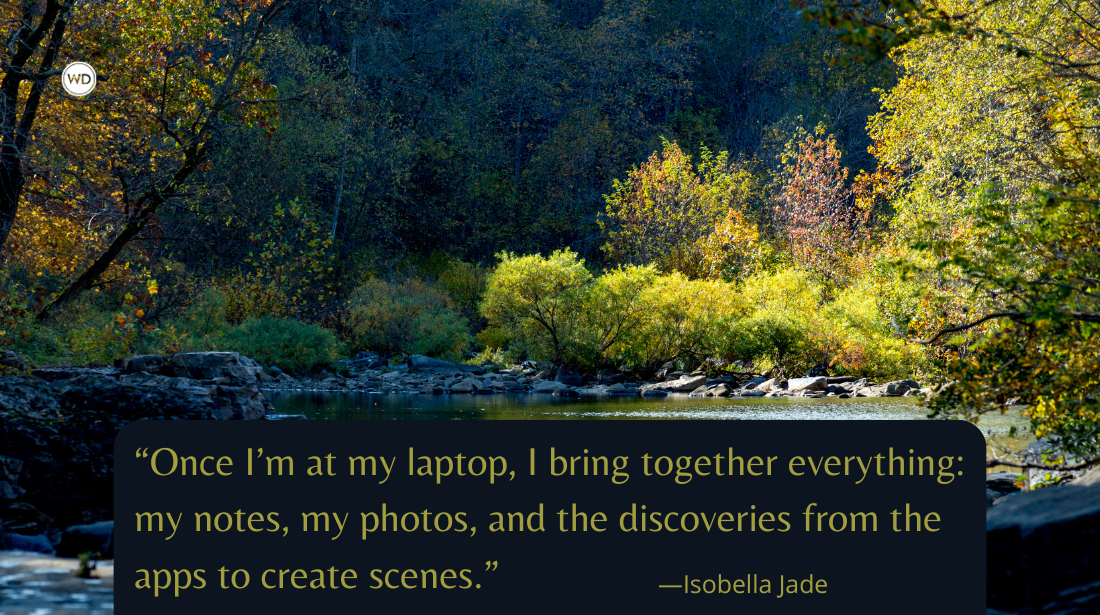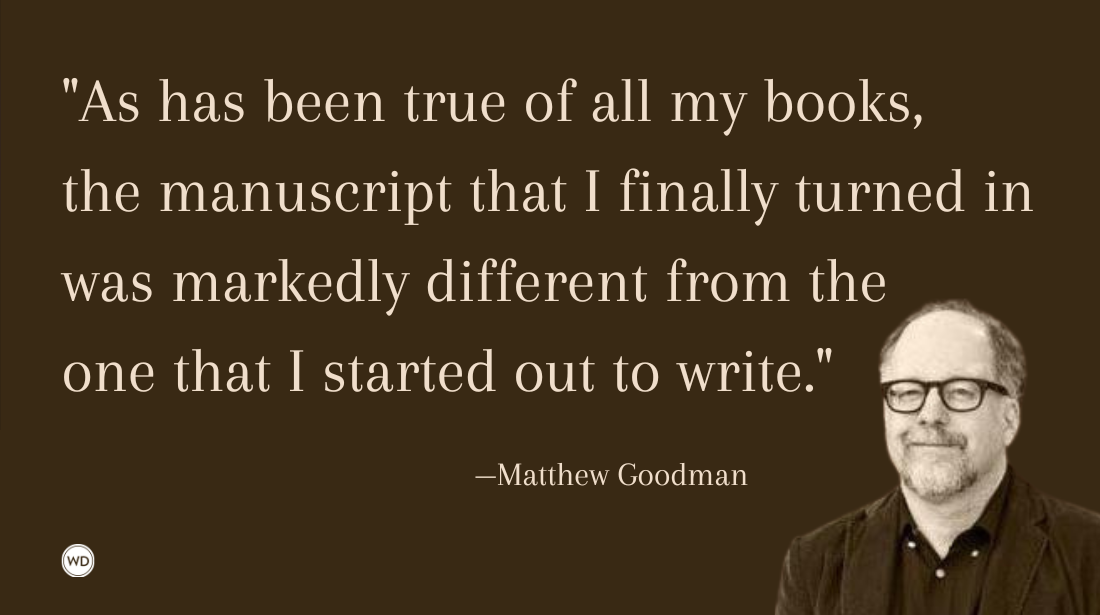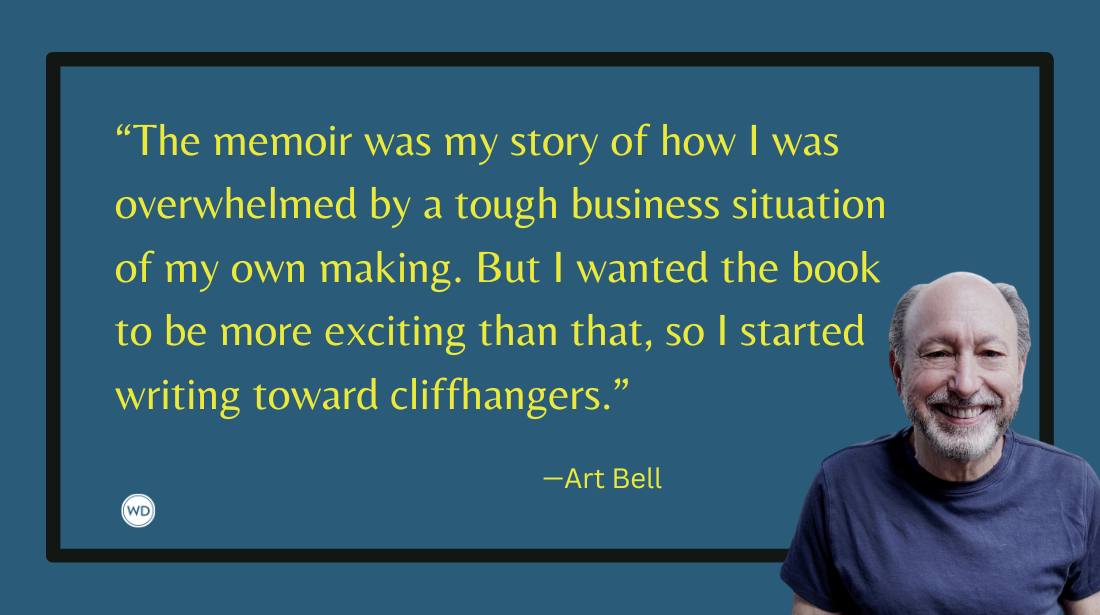Who Is a Journalist?
Are freelance nonfiction writers and online content creators also considered journalists? Alison Hill shares her take on what makes a journalist in today’s evolving media climate.
Two decades ago, the answer to this question would be simple—a journalist is an individual who works for a media organization and disseminates newsworthy information to the public through audio, print, or broadcast news outlets. The title would generally include such roles as reporters, editors, columnists, photojournalists, correspondents, and news anchors.
But today we’re in a completely different world and job titles such as “journalist” may need to be more flexible to accommodate all forms of journalism, including independently produced digital content. Wikipedia have even included “citizen journalists” and “knowledge journalists” in their list of who can be a journalist.
This is a question that can be answered from a professional and legal standpoint. Whether bloggers and others are protected by law has been widely debated and is a complicated legal issue which we won’t get into here. But we can quickly mention that in some states, bloggers have been recognized as journalists by the courts, and thereby offered the same constitutional protections under the "reporter’s shield law" as journalists at established news outlets. See our resources below for more information on the First Amendment and U.S. cases involving unaffiliated journalists.
That being said, let’s look in detail at the profession of journalism and what it takes to be a journalist.
Freelance nonfiction writers are often generalists, juggling a multitude of different projects. Some may involve creating online content such as blogs and social media posts, while other work may be more traditionally "journalistic" in nature.
I often face a dilemma when updating my LinkedIn or Facebook page. What title can I use? As a freelancer creating content in various mediums, for several outlets, and covering a range of topics, can I just call myself a journalist and be done? I’ve had several full-time journalism roles, so am I then a former investigative journalist? A former newspaper reporter? A former current affairs producer? I’m a trained and experienced professional, but can I still use the title if no longer associated with an established news outlet?
This made me ponder the larger question of who exactly is a journalist in today’s digital, multimedia world? Many online content creators claim to be experts in various fields with very little experience to back up their claim, yet nobody seems to care and they’re still successful. So, can bloggers, podcasters, and YouTubers who cover news, topical issues, and current affairs, similarly claim the title "journalist" with no professional credentials or affiliations? Or do we hold journalism to a higher standard?
Most of us would agree that it’s reasonable to expect someone who claims to be a "journalist" to have at least some associated skills and experience. This of course applies to any profession if we are to take it seriously, but with journalism it’s especially significant because of the nature and possible impact of the work.
But before we go any further it may be helpful to offer definitions of journalist and journalism and take a quick look at the state of the industry in 2023.
In a nutshell, journalism has been described as “storytelling with a purpose.” And its purpose, according to the American Press Institute is “to provide citizens with the information they need to make the best possible decisions about their lives, their communities, their societies, and their governments.”
A journalist is responsible for gathering and organizing material and distributing the finished (and verified) pieces through various formats and mediums, which used to be limited to television, radio, and print and has now of course expanded to include online outlets. This requires some training, knowledge, and skills acquired from courses taken in college or online, experience working at a media organization, or through guidance from an industry professional.
Traditional media gatekeepers have been historically strict on who qualifies to report the news and what can be published. There’s a good reason for this of course, as the press—the fourth pillar of Democracy—is meant to be a public service charged with the responsibility of providing vital information that affects our lives. They were supposed to be the watchdogs of public affairs, the government, and institutions.
But since hundreds of news outlets, especially regional newspapers, TV, and radio stations, have closed their doors for good, there’s a huge gap in news coverage, especially at the local level. News has become more national and global and mainstream journalists seem increasingly out of touch with ordinary people. In the United States for example, around one in five reporters live in New York, Los Angeles, and Washington D.C.
The public has largely lost faith in traditional journalism and many people are switching off the TV news for this reason and turning instead to online bloggers, podcasters, and YouTubers who cover (or often just discuss) the topics the mainstream news ignore. Some of them are remarkably good and have found ways to connect with a viewing or listening public desperate for information on issues they care about. Others are obviously fishing for clicks and purposefully share false information. But overall, could these new "citizen journalists" be fulfilling the role of the earliest journalists as defined by Kovach and Rosenstiel in their book The Elements of Journalism, who they say, “firmly established as a core principle their responsibility to examine unseen corners of society.”
So, regardless of training and experience, if an individual can create thoughtful, well-presented content on newsworthy events and issues, and manages to attract and engage an online audience, aren’t they providing a service just as important and valuable as any commercial or public news organization past and present? And obviously, if people are paying attention, they’re doing it well. Things become muddied when you consider traditional media is regulated by media law and press ethics, whereas the online space is still largely in its Wild West stage. And as we mentioned earlier, if you do tackle controversial issues as an independent or citizen journalist, you may not be protected under the law if subpoenaed.
In my opinion to be a journalist you must possess a minimum set of skills just like any other profession would demand. But as the saying goes, it’s not rocket science, and you can learn the trade through a combination of training and education (this could be online courses or community college). The basics can be learned in a matter of months and thereafter it’s trial and error.
When I started working at a weekly newspaper, I was a complete novice, it was baptism by fire. I was stationed in a rural ‘outpost’ and had to learn everything "on the job." Most days I was scrambling to get by, but the articles got done, and the paper "put to bed" nevertheless. We’re all beginners at some point and there’s a learning curve for everything.
Since the demise of local newspapers, we need community journalists more than ever, if only to record and cover town and city council meetings, local governments, and events. Most people don’t have time to attend or keep up with these things and so this coverage would be a valuable resource. The mainstream media are selective in their coverage and many big stories would be left untold if it wasn’t for the reporting of online independents. And we’ve witnessed over the years the importance of citizen journalists with their boots on the ground, "on the scene" reporting and recording of events. The pen is mightier than the sword, a picture is worth a thousand words, and an I-Phone camera in the right spot, at the right time, can change the world.
We’re at a point when job titles should be more fluid. Journalism is rapidly evolving from legacy media dominance to the endless possibilities offered by the digital age. This is an exciting era for both established and aspiring journalists. If you’ve spent time learning basic journalism skills, such as research, writing, and interviewing, can present and deliver a story with clarity and integrity, and you manage to attract an online audience—then kudos to you. I’d say for sure that you’re not only a citizen journalist, but an actual, real, honest to goodness, 100 percent journalist. You’ve earned the title, are providing a valuable service, and hopefully, if it ever came down to it, the courts would agree with me.
And if you’re a journalist, then …
I’m off to update my LinkedIn profile.
Alison Hill is a freelance writer, journalist, and Emmy-nominated producer who writes for print and online publications. Since 2001, Alison has been a regular guest commentator on BBC radio news shows discussing US politics and current events. Before going solo, she was a PBS producer and director and also worked as an investigative journalist for a Welsh TV series. From hosting TV shows and creating online content to going undercover with a hidden camera, she’s done it all. Alison grew up in a tiny village in Wales and speaks fluent Welsh. She’s an avid hiker, who also loves camping, kayaking, and reading. She now lives in South Carolina with her husband, 8-year-old daughter, and two rescue cats.








